A cavalcade of glamour and cultural pride marked the 2025 edition of Ojude Oba Festival held last weekend at the Awujale Pavilion, Ijebu-ode, Ogun State which saw an Ijebu tradition transitioning into a global event. Yinka Olatunbosun reports
From the early hours of last Sunday, the roads leading to Awujale’s Palace were packed with heavy human and vehicular movement. Sounds of traditional drums and Yoruba songs rented the air as festival buffs- young and old- gyrated while others from the Ijebu royal families rode beautifully decorated horses during the formal procession. Street vendors paraded their wares including food, clothes, beads and local crafts, turning the entire area into a kaleidoscope of culture.
Ijebu Ode, the cultural heartbeat of Ogun State, was once again the centre of attention on Sunday, June 8, with the return of Ojude Oba Festival, a celebration deeply rooted in tradition, fashion, unity, and community pride dating back to 19th century.
With the theme ‘Ojude Oba: Celebrating Our Roots, Preserving Our Future,’ this year’s festival was rich in colour, rhythm, and heritage, drawing ijebu indigenes- home and abroad- as well as tourists, celebrities, business leaders, and political figures from across Nigeria and beyond.
The expression “Ojude Oba” translates to “The King’s Courtyard” and traditionally, Ijebu People particularly the muslim converts would assemble to pay homage to the king three days after the Eid-el-Kabir. Today, it stands as a celebration of culture, a centrifuge of local economic activity, and a living legacy of the Ijebu people’s pride in their multi-generational heritage.
Inside the main venue, various Regberegbe (age-grade groups) and Eleshin families clad in aso-ebi, mostly coordinated and colourful aso-oke fabrics took turns at the parade, defying the scorching sun. The women, in beautiful makeup and regal headwraps, radiated elegance. As part of the custom, each group paid homage to the Awujale of Ijebu Land, Oba (Dr) Sikiru Kayode Adetona, CFR, JP, a revered monarch whose reign has preserved the legacy of Ijebu tradition for decades.
Among the high-profile guests was Governor Dapo Abiodun of Ogun State, who also joined the traditional horseback parade alongside the sterling crowd-pleaser also known as the King of Steeze, Farooq Oreagba. The latter’s grand entrance to the traditional venue, Awujale Pavilion, was a much-anticipated one having created a buzz last year with his signature cigar, tattooed arms and infectious smile that combined to make him the poster boy of Ojude Oba. Oreagba was clad in two distinct outfits to live up to his moniker: a chocolate and bronze as well as a yellow and green piece furnished with a handwoven criss-cross belt. Indeed, Oreagba has inspired a younger generation of young men and women of ijebu ancestry to embrace this festival which has enjoyed more sponsorships than ever before.
In a statement, Governor Abiodun reaffirmed his administration’s dedication to growing tourism as a key driver of economic development.
“Ojude Oba projects the beauty of our tradition to the world,” Abiodun stated. “This festival aligns with our vision to position Ogun as a leading destination for cultural tourism.”
He commended the Awujale for his wisdom, integrity, and foresight in sustaining the cultural identity of the Ijebu people through the years.
Interestingly, for over 20 years, First City Monument Bank (FCMB) has been one of the major sponsors of the Ojude Oba festival. And journalists often visited the Founder, FCMB, Chief Subomi Balogun in his residence which is a few kilometres from the venue. Since his demise, the festival has become bigger and his bank has continued his legacy of supporting the cultural heritage by putting on a strong presence at this year’s event, with its staff dressed in purple Dutch wax and matching aso-oke gele as they joined the happy crowd in the celebration.
Speaking at the event, FCMB’s Head of Corporate Affairs, Diran Olojo, described Ojude Oba as “no longer a local festival, but an international event.”
“It is a full cultural and economic ecosystem,” he said. “Tailors, designers, makeup artists, fabric sellers—so many businesses benefit from this celebration. For us, it’s more than sponsorship; it’s an investment in tradition and community.”
He added, “Once you think of Ojude Oba, you think of FCMB. This event is deeply connected to our brand’s identity, especially as our late founder, Otunba Michael Olasubomi Balogun, CON, was passionate about cultural heritage. We are proud to carry on that vision.” Also, in a statement, the bank noted that it had been the founder’s vision for the festival to grow, preserve its legacy and support economic development in Ijebu land and beyond by attracting tourists and creating opportunities for local businesses, artists and artisans.
Olojo hinted that next year’s edition may require a larger venue, considering the overwhelming crowd. “But the venue in front of the palace has great historical significance. We may have difficulty shifting the venue.”
The growing number of visitors at Ojude Oba makes it imperative to consider efficient measures for crowd control.
Otunba Sola Daudu, Bashorun of Jagunmolu Obinrin Fehintade spoke about the significance of the festival in uniting Ijebu sons and daughters.
“The festival gives us a chance to reconnect with one another and pay homage to our Kabiyesi,” he said. “It also encourages every egbe (age group) to give back to the land.”
According to him, over 85 active groups participated this year, many of them engaged in developmental projects across Ijebu communities. “In our group, for instance, we renovated a school for children with special needs and conducted medical outreaches. Multiply that effort across all groups and the impact is huge,” he added.
On the major lineups for the festival, he said: “We are here to pay homage to Kabiyesi, Alaiyeluwa Oba (Dr) Sikiru Kayode Adetona, CFR JP Ogbagba II, the Awujale and Paramount Ruler of Ijebu land. Each egbe will take turns to pay homage to Kabiyesi and he will pray for us. Also, we are going to have the Balogun families coming in with their beautiful horses, and it will be a very colourful display. After that, we will break out into our social groups.”
On the economic benefit, he observed that hotel business and local businesses thrive during the Ojude Oba celebration.
The event also attracted several Nigerian celebrities including Lateef Adedimeji, Eniola Badmus, Femi Branch, Tobi Bakre, and Street hop artist Lil kesh, who added glamour and fanfare to the already colourful atmosphere.
Undoubtedly, the fashion display was, as always, a highlight. Men were dressed in flowing agbada, richly embroidered in gold and silver, while women wore sparkling adire, ankara, and aso-oke, with matching jewellery and elegant headgear.
Remarkably, young women at the 2025 Ojude Oba added some flair by recreating urban street styles using the adire fabric. Some women changed the cultural narrative by riding the horses, thus making a historical and emphatic gender statement on the parade grounds.
The Federal Ministry of Art, Culture, Tourism and Creative Economy described Ojude Oba as “one of Nigeria’s most iconic expressions of heritage, fashion, and community pride.”
In a statement, the ministry noted: “Ojude Oba is a shining testament to our cultural diversity and the strength of traditional institutions in preserving history for future generations.”
The event’s organising committee is led by the chairman, Chief Oluneye Bisola Okuboyejo, the Obasewa of Ijebu, and Chief Prof. Fassy Adetokunboh Yusuf, the coordinator, appreciated the support of all stakeholders. They noted that the festival is now a global cultural brand, positioning Ogun State as a major destination for cultural tourism.
The Ojude Oba Festival traces its origin to around 1825 when Muslim converts in Ijebu land began visiting the Awujale to thank him for granting them religious freedom. The visit, held three days after Eid-el-Kabir, grew over the decades to include Christians and traditionalists—turning the event into a grand symbol of inclusion and unity.



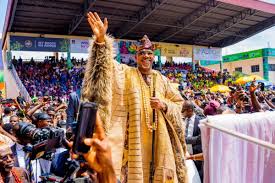


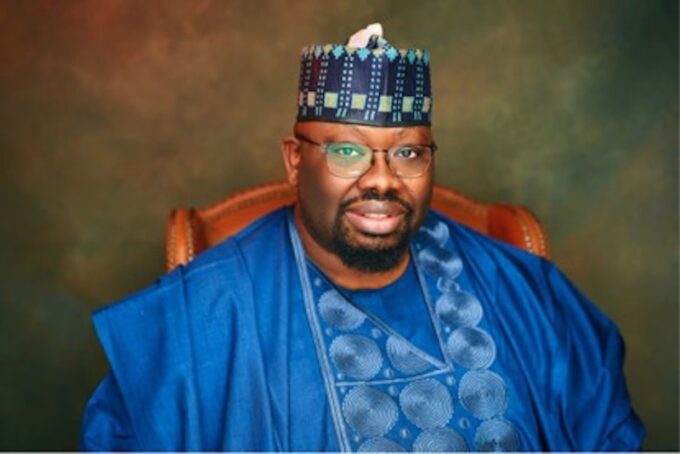


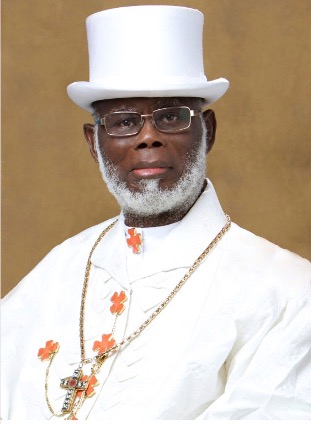

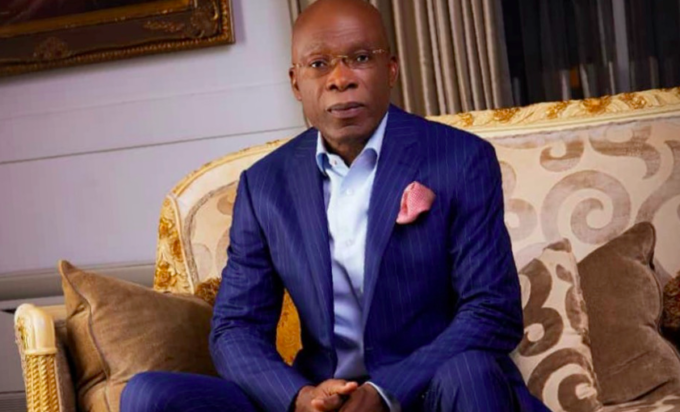
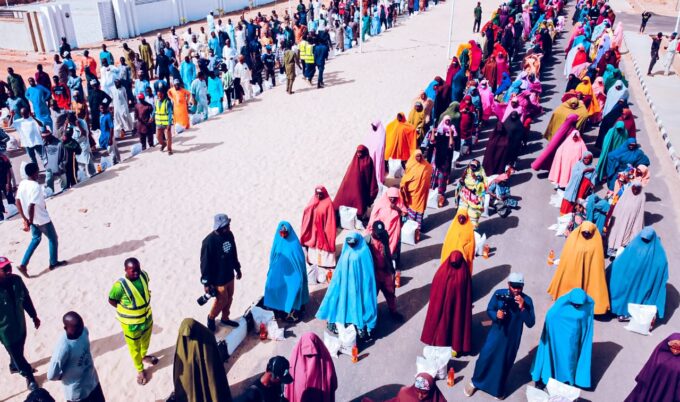




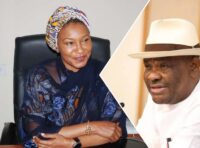
Leave a comment